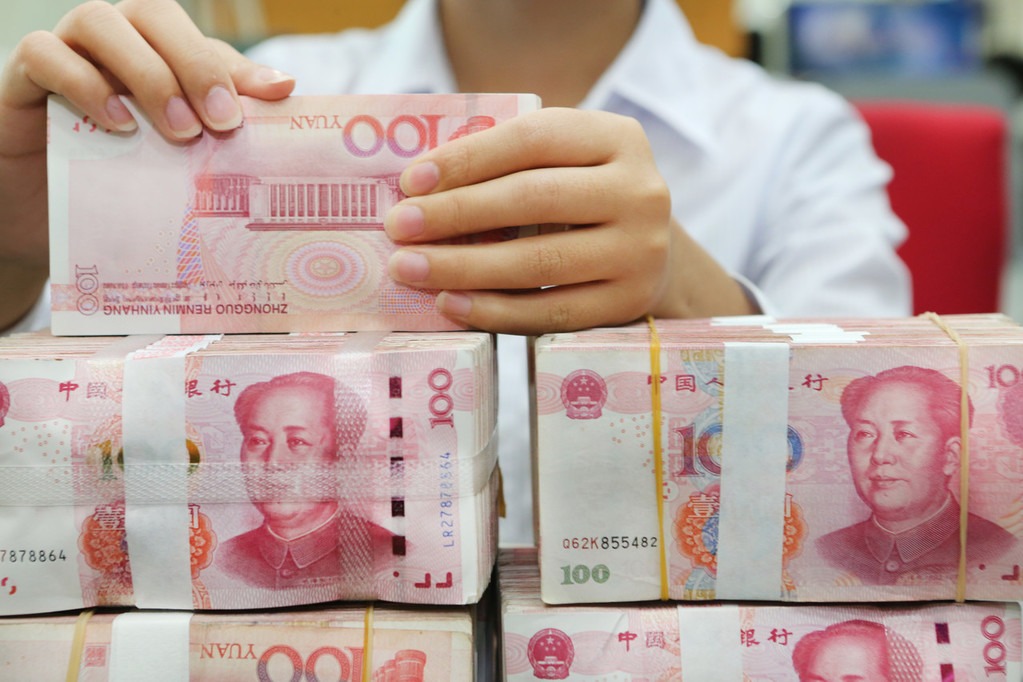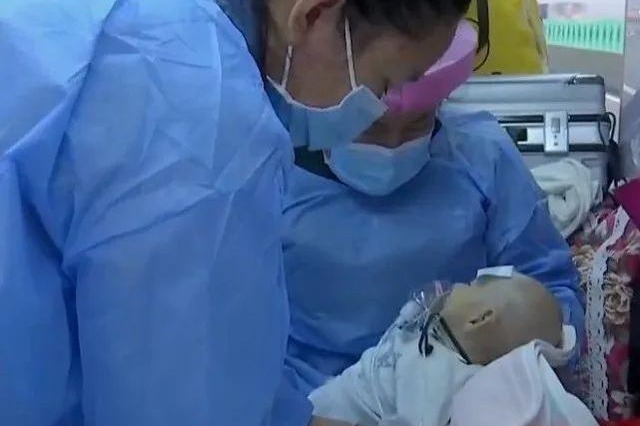As They like it

| British chef Fuchsia Dunlop says studying Chinese cookery and gastronomy is a task for many lifetimes. Andi Sapey / for China Daily |
Inspired by two years in the city of Chengdu, british chef has dedicated her life to taking authentic Chinese cuisine to the West
As she studied English Literature at Cambridge University 20 years ago, it never occurred to Fuchsia Dunlop that her life might take a Chinese culinary path. But nearly two years' stay in Chengdu, Sichuan province, from 1994 opened her eyes to Chinese cuisine and altered the course of this Briton's life. Dunlop was the first foreigner to be accepted into Chengdu's prestigious Sichuan Higher Institute of Cuisine and went on to become one of the leading authorities on Chinese cuisine in the English-speaking world.
"I have always loved cooking and eating," she says. "When I was a child, I wanted to be a chef. When I left university, what I really wanted to do was to go and cook in a restaurant."
Dunlop developed a fascination with China through a job sub-editing news reports about the East Asian region, and began taking Mandarin classes. In 1994, she won a British Council scholarship to study Minorities, Culture and History at Sichuan University in Chengdu, a city famous for its food, and her Chinese culinary journey really began.
"I had eaten some Chinese food in England, but it was nothing like the food in Chengdu, which was delicious, exciting, very fresh," she says.
She took to the streets on a bicycle, filling journals with notes and sketches, and grilling street vendors and restaurant owners about the city's food.
"I was naturally a cook. I love cooking for fun," she says. "So I just started, just through natural curiosity, wanting to know about how to make this delicious food. It wasn't a serious decision."
At that time, most people in the West knew little about Chinese food and what they did know was mainly confined to Cantonese cuisine, according to Dunlop. Her enthusiasm for Sichuan food soon led her to the idea that she would write a book on it, as a means of introducing it to Western audience.
| Cold chicken with a spicy Sichuanese sauce. |
She published her first book - Sichuan Cookery (Land of Plenty in the US) - in 2001 and its popularity soon spiralled.
Her Chinese culinary knowledge did not stop there. Dunlop has continued to visit China several times a year throughout the past decade for three to four weeks at a time, to study the cuisine of different regions, including Fujian, Shanghai, and Hunan.
She has also written another three books - Revolutionary Chinese Cookbook (2006), Shark's Fin & Sichuan Pepper (2008), which won the 2009 Jane Grigson Award from the International Association of Culinary Professionals, and Every Grain of Rice: Simple Chinese Home Cooking, which was published in June this year. She also won the James Beard Award for Food Culture and Travel in 2012.
Cultural barriers mean Chinese food has been greatly misunderstood in the West, according to Dunlop. Some Chinese ingredients, such as snakes, are unfamiliar and often regarded as disgusting, she says.
The Chinese approach to food, with a great appreciation for its texture as well as taste, also means some Chinese food does not make sense to a Western audience. Chicken feet, for example, to many non-Chinese, seem pointless because of their lack of meat, but to the Chinese the feel of them in one's mouth is important.
"China has the finest tradition of gastronomy in the world," she says. "Chinese people eat things that Westerners think are weird, because they have a refined appreciation of food. So I'm trying to write about it from that point of view, taking it seriously as a tradition, and explaining why Chinese people might enjoy eating certain things that Westerners disdain."
Dai Shuang is the owner of Yujia Restaurant in Chengdu, which has received many distinguished guests including current US Vice-President Joseph Biden.
| Celery with lily bulbs and macadamia nuts. |
She recalls when she and her husband, chef Yu Bo, first met Dunlop, "we were so surprised that she really had a profound understanding about Sichuan cuisine and the traditional cooking methods, which is even better than many local chefs. I have to say she's really an expert".
Dunlop admits it took her some time to get used to eating goose intestine and other unusual Chinese dishes, and it continues to be a struggle to persuade others to try new things, but says that Western tastes are gradually changing.
"What most people tried in the past was quite basic Chinese food, not really what Chinese people would eat," she says.
"Now there are more authentic restaurants; for example in London now you can go for Sichuan food, Hunan food, Dongbei food, Shanghai food, Fujian food. There are a lot of people in the West who are now able to experience a little bit of the diversity of Chinese cooking."
The approach to food in health terms is different in China and the West, according to Dunlop. In China, food is used to maintain balance of mind and body.
"In China, food is medicine, so if you are feeling ill, then you need to think about what you are eating. Or if it is in a different season, if the weather changes, you think about what to eat, to make yourself feel well. Westerners don't do this," she says.
Attitudes to Chinese food in the West have changed dramatically over the past two decades though, she adds. When she first visited China, Chinese cuisine was generally regarded as cheap takeaway food or just plain weird by many in the West.
"Western chefs are beginning to wake up to the fact that China has an amazing gastronomical tradition. I think the status of Chinese food has been completely changed."
Aside from writing, Dunlop also acts as a consultant for the Bar Shu Group of restaurants in London, speaks at events and gives cooking demonstrations around the world.
She tries to remain authentic in her recipes as far as possible. "My policy is sometimes if I have to make some changes to adapt to local conditions, I'll just tell the readers. So I say in Sichuan they will use this kind of fish, but if you cannot get it, you can try this other kind of fish," she says.
Many people are now following in Dunlop's footsteps and coming to China to learn about the country's cuisine. In the Sichuan Higher Institute of Cuisine, where Dunlop studied, there are now around 1,000 overseas students studying how to cook Chinese food each year, says Liang Xia, who is in charge of enrolment at the school.
For Dunlop, the learning process never stops. She blogs about Chinese food and has more books planned on the country's cuisine.
"The more I learn about Chinese food, the more I realize there is to learn," she says. "Studying Chinese cookery and gastronomy is a task for many lifetimes."
chenyingqun@chinadaily.com.cn
| Stir-fried yellow chives with venison slivers. |
(China Daily 12/28/2012 page29)
Today's Top News
- US plan for arms sales to Taiwan condemned
- Xi's remarks at BRICS summit in Kazan praised as visionary
- Prosperous China good for the world
- Fresh stimulus policies eyed to boost economy
- Xi urges efforts to bolster work in civil affairs
- Chinese mainland blasts US $1.99 billion arms sale to Taiwan


































